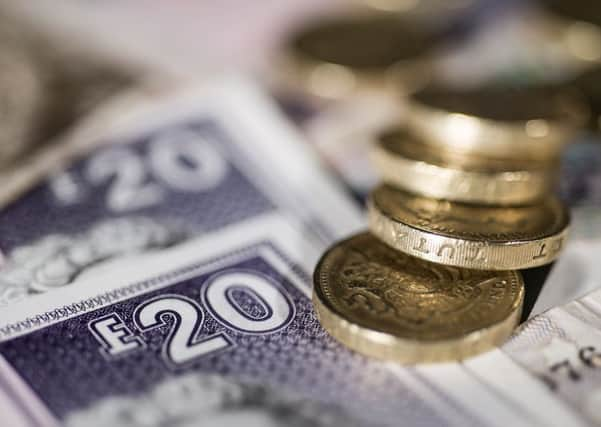Bill Jamieson: Predictions of cashless society are premature
This article contains affiliate links. We may earn a small commission on items purchased through this article, but that does not affect our editorial judgement.


The government’s Taylor Review of modern working practices argued that billions of pounds of extra tax revenues could be collected if payments for casual work such as gardening, window cleaning and child minding were made by officially-accredited platforms.
Separately, credit card giant Visa has launched a war on cash, with a scheme in the US encouraging small businesses to ditch it as a form of payment. Chief executive Al Kelly told investors that the company was “focused on putting cash out of business,” and is considering bringing the initiative here to the UK.
Advertisement
Hide AdAdvertisement
Hide AdThe assumption behind both developments is that cash transactions are already a thing of the past, confined to what is politely called “the invisible economy”, and that with the mass arrival of internet banking and the contactless card, physical money is on the way out. Why not give it a final push for our own convenience?
That is the way the drive to eliminate cash is being presented. But it’s not hard to see other motives behind both these pronouncements may be at work. The government constantly seeks to make every transaction open to scrutiny and to maximise tax revenues. A study by the Institute of Economic Affairs estimated the size of Britain’s shadow economy – paid work not declared to the taxman – at £150 billion a year or some 10 per cent of national income. And the credit card companies make money every time they facilitate a transaction.
But for millions of households, fuddy-duddy notes and coins are still a hugely popular – and perfectly innocent – means of payment, even though we may have switched to electronic payment through internet banking and make use of contactless cards.
I had thought I now had little use for cash. Was not everything now settled by paper or electronic transaction? And when it comes to investment, what need did I have for coins and physical money of any sort? Wrong on both counts.
Typically my first transaction of the day is to the village shop for milk and newspapers – a cash transaction, even on those days when I also buy bread and bird food. I pay the window cleaner in cash, the cleaner in cash and cash for odd jobs. I need cash to feed those insatiable car park charge machines, and to buy fruit and vegetables in the village market. I pay into charity tins and the boxes of street musicians by cash.
In restaurants I invariably tip by cash. In pubs and coffee bars I pay in cash. On local buses and taxis I pay cash. When abroad, I carry a reserve of local currency. For all of these transactions and many more, cash is the primary means of payment, and indeed the only means of payment as many self-employed do not carry around credit card machines.
Advertisement
Hide AdAdvertisement
Hide AdShould I insist on a “government-accredited platform” to make life easier for the taxman? The implication behind the Taylor recommendation is that cash settlement is a vehicle for dishonesty. But a trader’s relationship with the tax man is surely a matter for them, not for me to presume. What right do I have to insinuate that they may not be as honest as the day they were born?
Then there is the cardinal reason why we still carry around cash: the fear of being caught in an emergency when cash can be a vital – indeed, the only – means of settlement. Cash in hand also gives us some solace should bank security systems fail or succumb to cyber attack. And what can be more troubling – and financially immobilising – than the loss or theft of a credit card?
Finally, what of that ultimate non-paper store of value – gold and gold coins? Of all the precious metals, gold and gold coins are both a means of exchange and a store of value. They also have the great advantage of being universally accepted as a means of settlement in almost every country in the world. Investors generally buy gold as a way of diversifying risk. Gold is the most effective safe haven. And it is not dependent on the whims of central banks and government-induced changes in the value and accessibility of money.
It also has a great edge over paper as a store of value. While it is volatile and does not offer investors any dividend yield or interest income, it can work as a long term hedge against inflation, currency and market crashes. Since 1970 the price of gold has risen from $235 an ounce to more than $1,200 today.
So for reasons both for immediate convenience and long-term investment, beware the attempts to bully us into a cashless, paper-only economy.